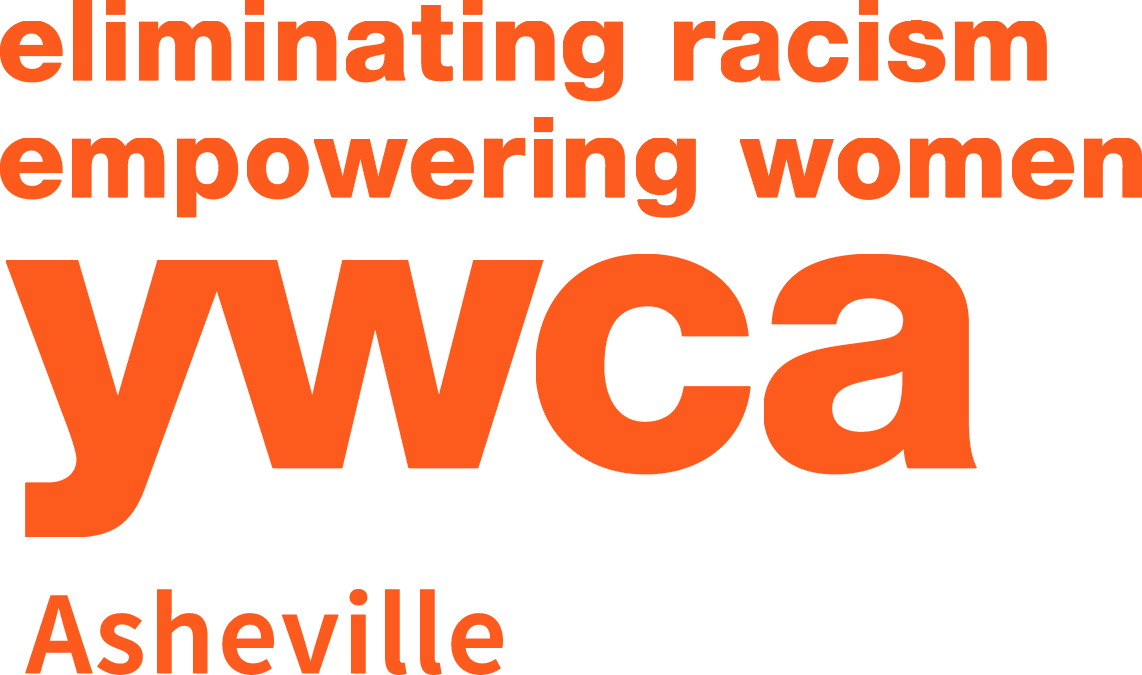BHM | Sharing our Story: Dr. Amieris Lavender
Amieris Lavender is the Chief Program Officer at YWCA of Asheville.
Tell me a little bit about yourself and how you came to be at the YWCA of Asheville?
I am a fierce friend, proud plant parent, advocate for liberation, joy, and justice, and absolutely delighted by dad jokes. I spent most of my life living somewhere on the coast of California until I moved to East Lansing for my Ph.D. (GO GREEN). I took a gap year after I finished my degree, and was exploring how I wanted to leverage my skills and training. I was also hoping it would be somewhere without a 9-month winter. A dear friend, Dr. Darrius Stanley, was a professor at Western Carolina, and I had come to Asheville for his wedding. After his wedding his wife, Jaimee, said to me: “wouldn’t it be great if you lived here”? And I thought…” yeah”! When I looked online, the YW Chief Program Officer was there and it felt like it was just waiting for me. It brought together all the things I was looking for. It spoke to my interests academically – feminist studies, programming, and implementation as well as politically- I really wanted to be involved in meaningful mission-driven work. So I took the hint and moved.
When you think about Black History in Asheville and Western North Carolina, what surfaces for you?
It has been fascinating to learn about Black History in Asheville. Especially when thinking of my own family’s roots in Detroit, Michigan and Tuscaloosa, Alabama, and my being raised in California. Black History in Asheville is really rich and tells a dynamic story about Black migration in the country. For instance, while some Black folks here are descendants of enslaved people who escaped and hid in the mountains, others come from those who came wanting to find work. In any case, the Black folks generationally tied to Asheville are descendants of people who bravely settled here, built and birthed life, and forged powerful educational, economic, and neighborhood communities. And there are Black people still living today who remember what their lives and worlds were like before all of that was uprooted and thought to be destroyed. In the history of Asheville you can feel the powerful essence of Black possibility. Then you have this push of whiteness that undermined it all.There is a deep pride in being Black and from Asheville and a protectiveness that I haven’t ever experienced. I grew up in Long Beach, and you might like your neighborhood or your block, but you don’t feel like you legitimately own it. The Black folks who live here now, do know what it’s like to feel ownership and to lose it. It can be so easy to think that slavery and segregation were so far in the past. Especially when being raised in more western states- where the enslavement of Black people, specifically, is not the history of that land or region. I grew up learning more about missions than plantations. Living in Asheville connects me to another story of Black America that I am really grateful to witness and learn from.
Who was an important or inspirational black woman in your life growing up (and why)?My childhood best friend’s mom. It is really interesting for me to think of her now that I am older. When I became friends with Kayla in 2nd grade, her mom, Moneick, decided at some point that I would be her kid too. She was such a champion for me; she loved me, she already had two children, and just decided that she would have a third one. She was really a pivotal force – that adult figure in my life, outside of my immediate family, who cared about me. And she didn’t have to do ANY of it. As an adult, I have a great appreciation for what that meant. To give, without expecting anything in return. She went above and beyond, and I think it definitely changed my life.
Who is one of your favorite influential black women throughout history (and why)?
I always struggle with questions like this because I am more motivated by people I know, not historical figures. The Black women who most inspire me are my friends. But when I think about someone whose words had an impact on me, I think of bell hooks. Reading bell hooks’ “All About Love” really unlocked a part of my life. I feel like I am a person who grounds my life in what love means, and what love is and wants to move from a place of love in all of my interactions and I think that book really guided my understanding of that. I truly believe that love for ourselves and others is the root of joy and our greatest purpose in this life.

